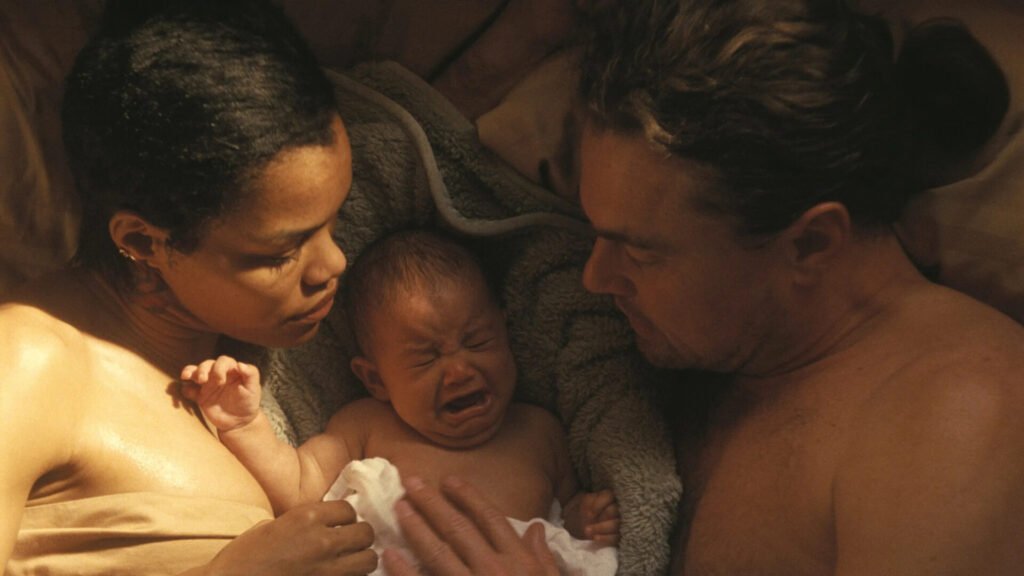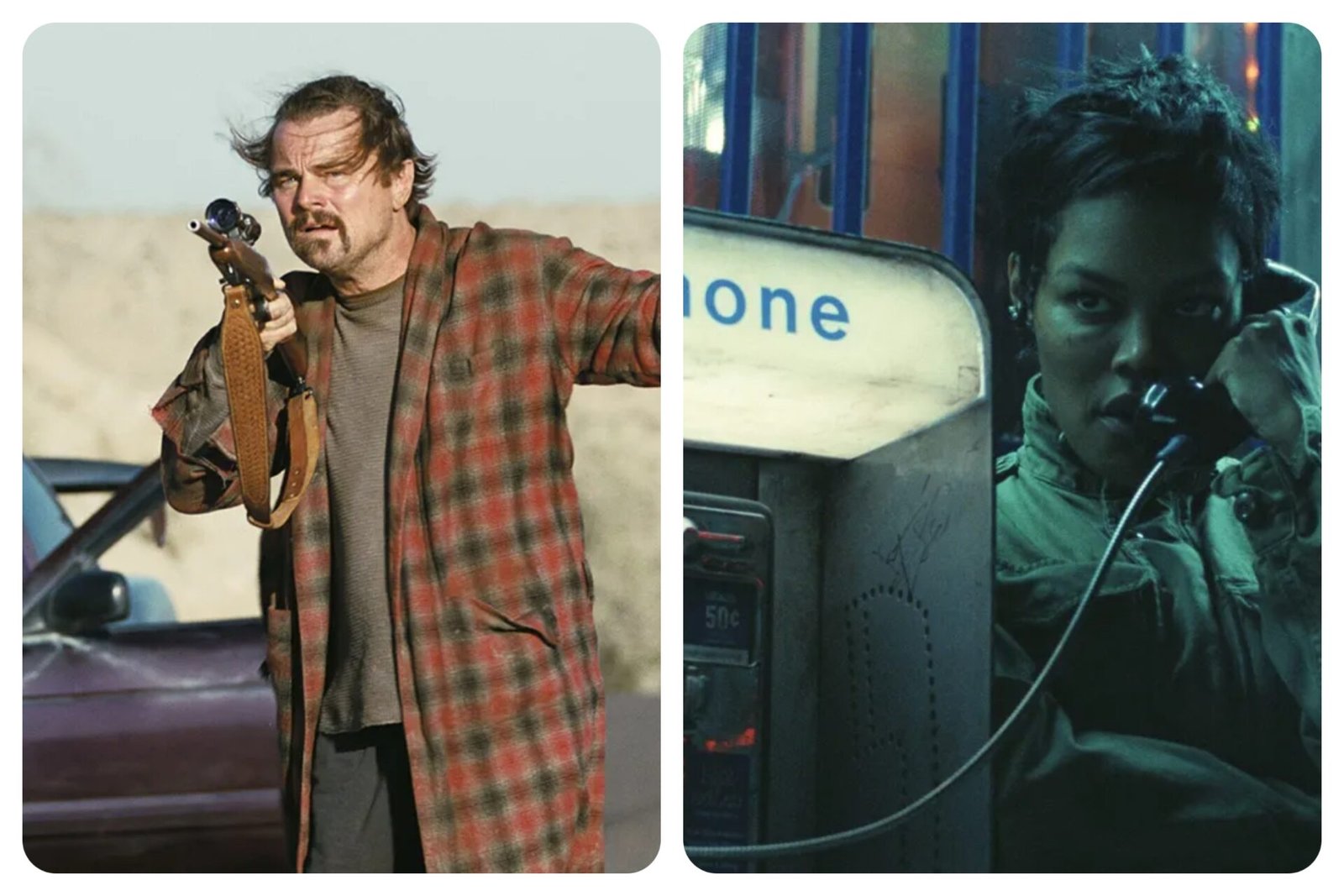Paul Thomas Anderson changed the name from The Battle of Baktan Cross because it didn’t suit the film (most of the battling is outside of the quiet, wooded town). One Battle After Another describes it better, but it almost undersells it. There are endless battles back-to-back, rapid-fire.
If I can tease the ending a little, even the end suggests another battle to be, and you feel like it was all a big hamster wheel. That’s you’re just going around in circles. That’s the key issue with this film, it’s an old man film. Defeatist. That’s not to say it’s not a fun ride. It might be the best action movie this season, but for a film from the legendary PTA, it’s emotionally lacklustre.

To give you the run down, Leo plays a shlubby ex-revolutionary whose fiery romance with the revolution’s leader (Teyana Taylor) left him hiding out in the California backwoods as a pothead single father. He’s not far off Leo’s character in Once Upon A Time In Hollywood, just a little more pathetic. In the meantime, sexually-repressed ultra-marine Steve Lockjaw (Sean Penn) is tracking the father-daughter down out of obsessive love for Teyana Taylor’s character (Perfidia Beverly Hills). In between all this there’s kidnapping, immigration raids, assassinations, and a secret group for ultra-rich racists called the “Christmas Adventurers Club”.
As silly as so much of it is, it’s played straight. You can feel that Pynchon influence in the names and characters, but it’s otherwise barely related to Vineland, the Pynchon book PTA was inspired by, and that’s not a complaint. There’s very little done here that isn’t better than the book. Less convoluted, less sexually confused, and less UFOs. Even emotionally it hits harder, but the best change is the modern setting. The police raids and street protests feel so real, so close to modern newscasting that each battle is gripping and immersive in a way that few movies attain (not to mention its show in so many technically-gorgeous one-shots).

In fact, the movie is just generally stunningly done, from shooting, to score, to acting. There are no false notes except for the writing, which makes us all a little confused about who and why we’re rooting for. Leo & Teyana’s revolutionary squad are never explained, except that they’re against fascism. To them, that consists of liberating detention centres and robbing banks, not to mention killing security guards. They’re generally chaotic, and Sean Penn’s Steve Lockjaw is really just one of the people they piss off. Then there’s the added layer of Leo being a bad husband and father, causing half the issues in the film to begin with.
Even worse might be that Benicio Del Toro’s character (Sensei Sergio St. Carlos) is the most moral and competent revolutionary in the film but he’s sidelined to his own separate movement. You almost wish the whole film was about him instead.
So all-in-all, it’s an action movie that isn’t cut-and-dry. A PTA fan expects that, but as an action fan, you don’t get the feeling that our main characters know what they’re doing. And the fact that the movie ends with a cheap revolutionary message along the lines of “we failed, but maybe you won’t”, muddles it further. Does PTA think that’s a good moral to the story? Dooming their daughter to run around the wheel while there’s better ways to handle things like we see from Benicio’s character?

It’s these two warring factions that makes the film so hard to recommend. On one side, there’s the stunning artistry of the filmmaking by one of our greatest living auteur filmmakers, Paul Thomas Anderson, and on the other there’s the actual emotional weight. So many scenes will certainly become iconic, but in sequence, they don’t build to a powerful emotional climax that makes the whole ordeal worth it. It just fizzles out.
